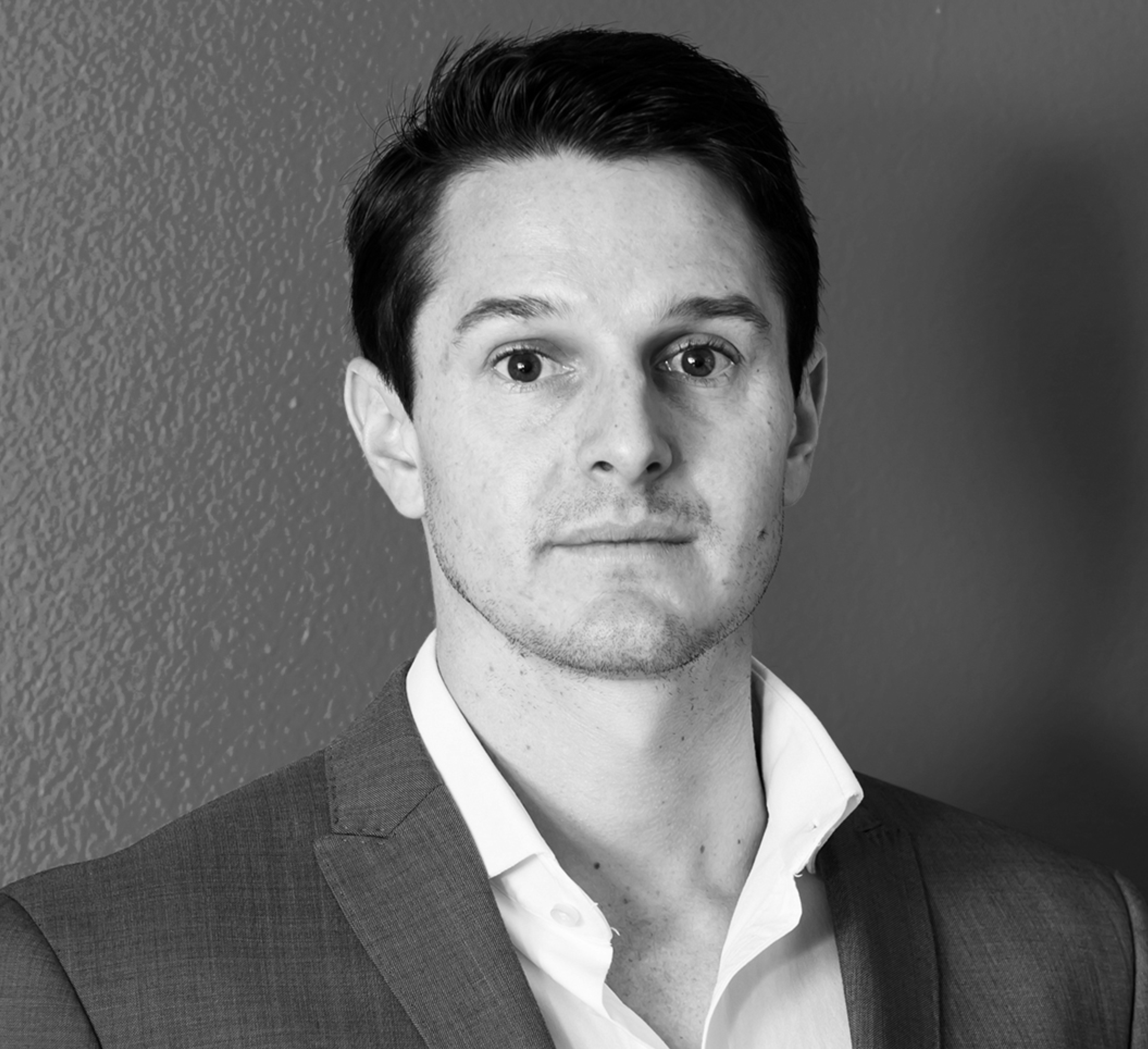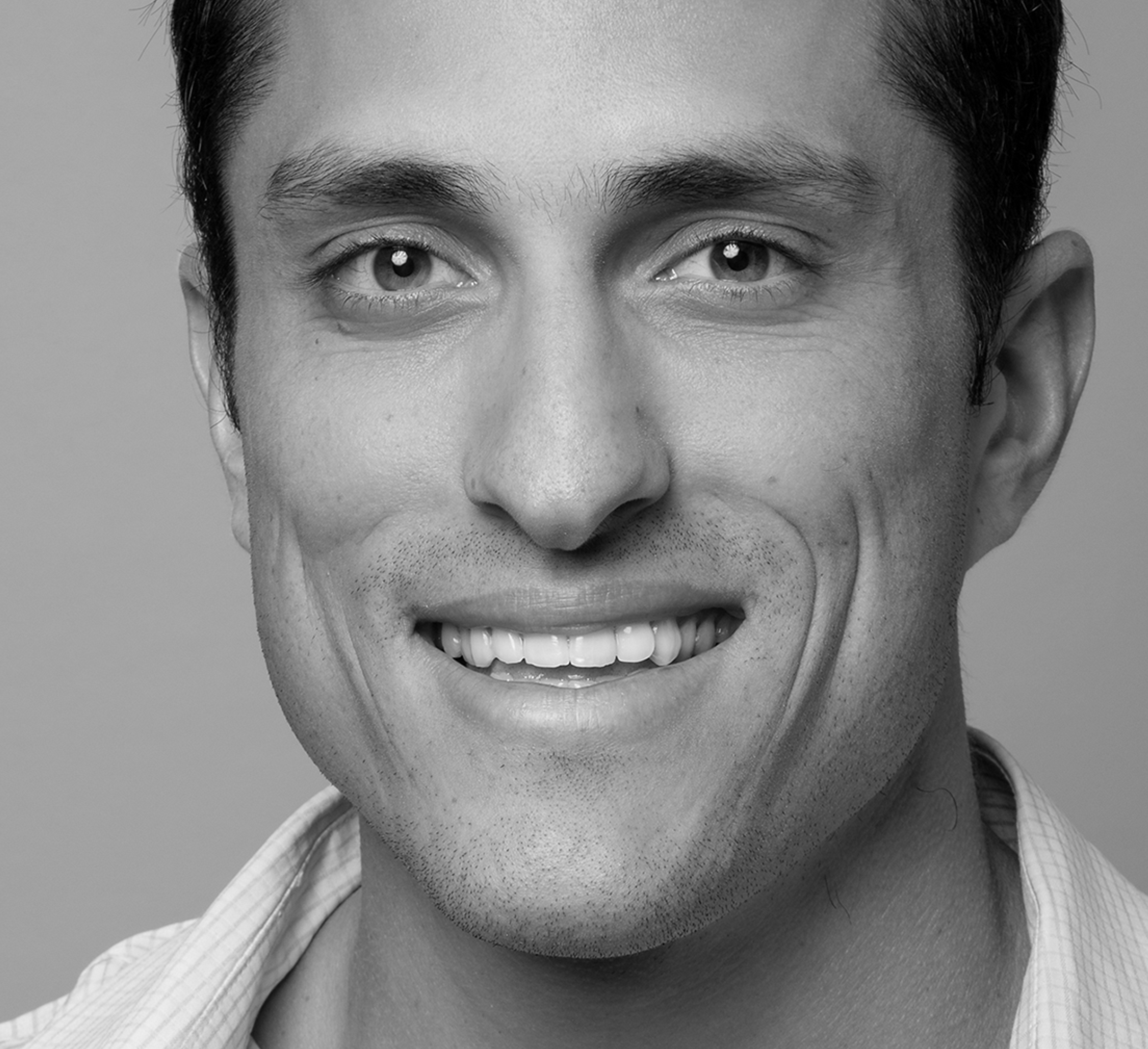50: Richard Knight
Chief Financial Officer: Argility Technology Group
Argility’s passion for innovation ensures it’s at the forefront of intelligent software and the internet of things

CIARAN RYAN: This is the opportunity to plug the Certified Financial Officer of South Africa designation, which is offered by the South African Institute of Business Accountants. This is really the Formula One of accounting designations and is available only from the South African Institute of Business Accountants. The CFO designation is internationally recognised and validates the years of toil and ingenuity that it takes to reach the top of your field. You’ll be part of an exclusive and powerful network of CFOs and finance executives. As a CFO, which is a Certified Financial Officer of South Africa, you get to share in a wide range of benefits, you gain status as an international finance executive and achieve your listing in the official CFO directory. You’ll receive exclusive invitations to the CFO Talks events and get a chance to connect with knowledgeable thought leaders within the CFO community. For more information, go to www.saiba.org.za/designations
Today I am joined by Richard Knight, the CFO at Argility Technology Group and that’s a group of technology businesses focusing on the retail and supply chain end of the market, an it’s involved in some very interesting things in terms of artificial intelligence and the internet of things and we’ll come to that in a minute. Richard currently holds a chartered global management accountant qualification through CIMA, where he achieved first place in South Africa for the CIMA financial strategy exam in 2013. It’s a pretty impressive CV, Richard, welcome to CFO Talks.
RICHARD KNIGHT: Thank you very much.
CIARAN RYAN: You’ve been with Argility for nine years, tell us a little bit about the company and how has it grown over that period of time?
RICHARD KNIGHT: It’s been quite a journey with Argility and it’s now known as Argility Technology Group. As you say, I joined nine years ago as a graduate straight out of university. At that time things were going really well in the group; we had a lot of blue-chip customers in the furniture and retail industries. Then after that financial crisis retail has never really got back to where it used to be and we started to see retail businesses battling along the way, one of those was the Ellerines Group, Ellerines Holdings, they were one of the biggest furniture retailers in the country and parts of Africa. They went into liquidation or under business rescue and that caused huge risk in our company, obviously being one of our big customers, that was the beginning of reengineering Argility, putting it on a new track and looking at how we can transform that company and the group. With that a whole lot of leadership changed, I took over in mid-2014 as the CFO for the group. As I say, we then changed leadership, we had a new CEO and other new managers who came in, and we started to focus more on what we had at the time and where we wanted to go to. So we spent a lot of time on the vision of the business and where we saw ourselves in the next five years. A lot of work has been done in terms of turning that around and becoming a real pivot in the market again, where we used to be. Argility is actually 30 years old, we were known as UCS and part of the UCS Group that was listed on the JSE, they sold their services arm to Business Connexion in 2013 and as part of that the brand was sold too and they delisted. We kept the proprietary software, which is Argility and quite a few other assets.
‘If everyone starts to panic, you can’t focus on the opportunities’
CIARAN RYAN: Let’s come back to the whole artificial intelligence thing in a minute, but here we are, we are sitting in the middle of this coronavirus pandemic and everybody is, of course, panicking, none of us have seen anything like this before, the economy could contract massively this year. Now, as a CFO running a business, first of all you are in the tech space, so I guess it’s fairly easy for social distancing, you just get everybody to work from home, as long as you have got internet you can carry on production. But I think what is of more concern to people is how do they make it through the end of this month, are we going to make payroll, employees are going to be concerned, do I still have a job next month. You just look at the restaurant trade in South Africa and how many hundreds of thousands of people have lost an income [March already]. Just give us a bit of a sketch from your point of view as CFO, how do you manage something like this and from your business and your sector what are the big risks?
RICHARD KNIGHT: For us it’s managing our partnerships with our customers. As you said, we are an IT company so we can continue and we are used to working remotely, and it’s intangible, the guys are working on code as they go along. I think one of the biggest things straight after the initial speech from our president I already received phone calls from two customers who were very concerned about the next couple of months and looking for payment holidays or what can we do in terms of reducing costs for them, their monthly cost. So for us it’s really about strategic partnerships and how we value them and what we can do to help the business. We’ve also been talking about what other technology applications or solutions we can bring to the table that could actually help them during this time, those that can still operate after this lockdown and how they are going to operate going forward because from our perspective we see this as being a change in the way of work forever for many businesses. Businesses are now forced into digital transformation, if you had to call it that, they will now start to become more trusting of employees working from home and being able to use technology such as Zoom, Microsoft Teams and Skype. So I think it really will change going forward. For us it’s looking at the non-essential expenses within our business, managing those and purely focusing on what is core to our operations, cutting out anything that is nice to have, ensuring that our employees are well informed in terms of our plans going forward and just trying to manage that panic, so that there isn’t panic in the industry and panic within South Africa. I think if everyone starts to panic, you can’t focus on the opportunities. So we keep talking about what opportunities are there for us, especially being in tech and trying to help our customers in that space.
CIARAN RYAN: Just go back to this point about non-essential expenses, what would be non-essential expenses for you?
RICHARD KNIGHT: The nice-to-haves, so marketing for instance, if there were trade shows and expos that you had planned for and you can decide that you don’t need to do. So you can cut down on certain marketing expenses. Around contracts, so contractors of non-essential services and reducing the time that we would require from them. Those are probably the key areas. As a tech business we don’t have major suppliers like some businesses will have. Our suppliers will be hosted servicing, rent, there’s actually not a lot from a supply perspective, our biggest cost is our staff and that suits us in terms of managing that area.
CIARAN RYAN: Presumably you have got skilled staff as well, you don’t want to lose them because if you lay people off it’s not easy to build that up, there’s a lot of institutional knowledge that gets accumulated in an organisation, right?
RICHARD KNIGHT: Yes, correct, especially the fact that there’s a lot of IP that’s been built up with our staff, so it’s key for us to retain those staff members and ensure that we as a business are going forward after this. We have to do anything that we can to ensure that we can carry on paying salaries and ensuring that we keep the lights on from our side.
Spike in subscription rates for companies digitising manual work
CIARAN RYAN: There are, of course, some businesses that are doing very well, you just mentioned Zoom and Microsoft Teams. I saw some figures from Microsoft Teams, I think their usage has improved 40% over the last month, which is massive for any business but it’s understandable, you’ve got all of these remote collaborations and virtual meetings that are happening. So this is the kind of thing taking place, webinar businesses, people who are in webinar instruction and that kind of thing, I would imagine they are going to do very well at a time like this, would you agree with that?
RICHARD KNIGHT: Yes, I would definitely agree with that. It’s the same with businesses that have applications for easy signing, DocuSign and Adobe Sign, there’s no longer opportunity to be able to just print and sign documents or contracts. Easy workflow, maybe it’s not possible, maybe it’s used to a manual process. So a lot of focus on the new RPA, robotic process automation, and applications that can help us with that. So I think digitising some of the manual work, those businesses will probably see a spike in their subscription rates.
CIARAN RYAN: Just a slight change of subject, with the coronavirus there is this issue of force majeure, which a lot of companies are discussing, they will not be able to meet their contractual obligations in some cases. Is this something that comes up in your business and, in your opinion, is this a force majeure event?
RICHARD KNIGHT: Not really in our area purely because most of our business is mission-critical, so they’re going to battle to be able to shut down that contract and then pick it up again when business is allowed to operate. It’s not something where we can just shut down mission-critical systems. There are areas where yes, they will be able to on some of our smaller applications, where we can say based on this here is our one-month notice on our subscription but that’s a smaller part of our business.
CIARAN RYAN: How many staff do you employ?
RICHARD KNIGHT: We have 120.
CIARAN RYAN: Really and where are you based?
RICHARD KNIGHT: Our head office is in Rosebank and then we have another office in Black River Park in Cape Town.
CIARAN RYAN: Okay, just go back then to the subject of you went through this whole corporate restrategising some years ago when Ellerines went bust. I guess you were far too reliant on a single customer. So now what sectors are you catering to? In my introduction I said you are in retail and supply chain management, but just talk briefly about some of the changes that are happening, what is artificial intelligence going to do for these sectors, and the internet of things?
RICHARD KNIGHT: I think in the retail space a lot around increasing revenue, reducing costs, those are some of your key areas where AI or what we call machine learning can help businesses. So where we are seeing a lot of ROI is around predicting purchasing patterns, so that market basket analysis of customers, linking that also to e-commerce, so looking at past trends and grouping people into segments and then from there analysing what they would possibly buy again. Another one is around credit scores, with some of our retailers a large percentage of their revenue comes from credit and so if you can quickly understand the current credit status of your customers and potential customers, and you’re able to recognise what you can upsell to them. So that’s on the retail side. On the supply chain side, with warehousing specifically, we have got your labour force improvement, so needing machine learning to understand where best to place stock within a warehouse but it will also ensure that it will move out quicker based on your order fulfilment and with the trucks that would be coming in, how you align, where you place certain stock as it comes in and then packed into the warehouse and when it’s going to leave. So there’s a lot of machine learning around that. In the logistics space, where we also play, you’ve got predictive maintenance, which could become a big thing for a lot of companies in logistics, so predicting the type of maintenance that will be required on those vehicles, when it will be required and allowing businesses to proactively send those vehicles into maintenance or to replace certain parts before it actually happens, which could put those vehicles out of action for a while. So a few quick examples in terms of the AI space, when it comes to the internet of things, if you take a human being you’ve got AI, which is basically your brain and that’s processing a lot of information but in order to bring in that information you’ve got your so-called sensors like your eyes, your hands, your feet, and you’re touching and feeling things and you are seeing things, and all of those sensors are providing information that’s being sent to your brain and your brain is then processing that and creating an action from it, basically. So the way we see it is we have the internet of things business that is all these sensors out there and you can have one of the sensors is basically today being manufactured and that is pulling out data and it’s then sending it to the cloud or the brain, and that then processes that data to create actionable insights. Ultimately you as the end user of that want to say, well, what do I want to achieve in my business or what or what type of [indistinct] am I looking for, and you start to programme the machine to start mining that data and providing reports and actionable insights to be able to use that and create some sort of return on investment or a new sale or some action that needs to be made. So I think those two technologies really link well together and we see huge potential for those two technologies going forward in what they can do for companies and for countries worldwide.
Technology to encourage credit payments
CIARAN RYAN: Good, you mentioned that one of the sectors you are dealing with is credit, on the feedback that you are getting from people who are in that business is there concern with this virus that there is going to be mass defaults? In other words, a tanking of the credit industry.
RICHARD KNIGHT: Yes, we actually just came off a call earlier today with one of our customers who deals a lot in credit and they are very worried about that, they believe it’s going to shrink completely, people are going to default on making payments. The way to get around that, as we were discussing, is what intuitive ways can we design in the system and what can our customer offer to their individual clients that have got credit in a way that they can make payments. If you think about it, these clients would go into a store and they would pay their next monthly installment, now those stores are closed and they can’t do that, so how do you link it up with, for instance, some of the grocers like Shoprite, Checkers, there’s Pick n Pay with Money Services that are allowed to operate and have these functionalities. So what else can we do to help them ensure that customers are making these payments.
CIARAN RYAN: How can you do that, what sort of incentives can you offer?
RICHARD KNIGHT: At the moment we haven’t been able to brainstorm on what type of incentive models we might be able to put in place to entice customers to make those payments, it’s something that the guys are looking at. To be honest, it’s going to be very difficult to try and incentivise someone who suddenly doesn’t have a job or is not being paid this month because the company said they can’t or your company is short paying salaries because they aren’t able to pay the full payroll.
CIARAN RYAN: It’s going to be a tough one, everybody is going to look at different solutions and so on. Even somebody in the banking industry was saying to me because I asked him, do you think you’ll have a job in three months’ time, and he said I don’t know. He said if it comes down to it, I am going to feed my family first, I can guarantee you that. I think everybody will look at it the same way. Richard, we are out of time but one last question, have you got a good book you can recommend?
RICHARD KNIGHT: Yes, the current book that I am reading is called Shoe Dog by Phil Knight, the founder of Nike. It’s a very interesting story, he’s a very good storyteller in terms of his journey and how he founded Nike. You get some really great learnings from it and it’s also easy reading and light reading too.
CIARAN RYAN: What was the main thing you got out of that book?
RICHARD KNIGHT: I’m still in the early stages of it at the moment…
CIARAN RYAN: I think it was his persistence, I think the fact that he was written off so many times he should have gone bust and he didn’t, and it was the fact that he was just so damn persistent.
RICHARD KNIGHT: Yes, he had this love for shoes, he was a runner and he had a great coach who kept backing him and became one of his partners in his early business. He just saw this opportunity, as you say, he was very persistent, he didn’t stop but I think he also surrounded himself with the right people from the get-go who were very intrigued by the business and were also keen to be part of it.
CIARAN RYAN: Richard Knight, CFO at Argility Technology Group, thanks so much for joining us, stay in touch, let us check in with you again and see how things are going in this time of coronavirus. We wish you very well, keep safe and good luck to yourself and your staff, and thanks for coming on.
RICHARD KNIGHT: Thank you very much for the interview and for chatting and all the best to you and your team.
CIARAN RYAN: This is the opportunity to plug the Certified Financial Officer of South Africa designation, which is offered by the South African Institute of Business Accountants. This is really the Formula One of accounting designations and is available only from the South African Institute of Business Accountants. The CFO designation is internationally recognised and validates the years of toil and ingenuity that it takes to reach the top of your field. You’ll be part of an exclusive and powerful network of CFOs and finance executives. As a CFO, which is a Certified Financial Officer of South Africa, you get to share in a wide range of benefits, you gain status as an international finance executive and achieve your listing in the official CFO directory. You’ll receive exclusive invitations to the CFO Talks events and get a chance to connect with knowledgeable thought leaders within the CFO community. For more information, go to www.saiba.org.za/designations





